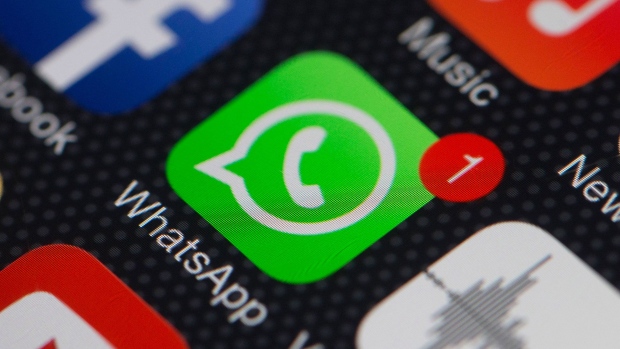Aug 20, 2019
Facebook Wins Some Relief From India Court on Message Encryption
, Bloomberg News

(Bloomberg) -- India’s top court handed out a reprieve to Facebook Inc. in its battle to preserve the encryption feature of its Whatsapp messaging service which prevents it from sharing details of users or messages with the authorities.
The court stopped short of scrapping a lower court hearing on a plea that seeks to force Facebook to share user details and trace origin of messages in order to fight cyber crime and fake news. However, it can continue proceedings but has been directed not to pass a final order. The top court also agreed to examine Facebook’s request to transfer all cases across the country to the top court in September.
The case is keenly watched as it brings out the conflict between privacy concerns on governments accessing citizens’ messages and the fight against cyber crimes like child pornography. Facebook claims WhatsApp messaging service is secured with end-to-end encryption and even the company cannot read messages or trace their originators. WhatsApp’s lawyer Kapil Sibal argued that an order by the high court may lead to changes in the product globally.
“The matter involves privacy of the whole country. The case is of such magnitude that only Supreme Court should decide it,” said Facebook’s laywer Mukul Rohatgi. India’s Attorney General K.K. Venugopal opposed Facebook’s petition saying the high court should be allowed to give a verdict as it may take the top court up to five years to decide the issue.
The Madras High Court is hearing a petition by a lawyer Antony Clement Rubin who sought linking social media accounts with citizens’ digital identities under the ‘Aadhaar’ program, which includes biometric data - fingerprints and iris scans. The case turned to tracing originator of WhatsApp messages after the local police intervened in the case and sought orders to allow breaking encryption.
The top court also issued notices to Twitter and Google, as they were a party to the original case in the Madras High Court. In the high court, Facebook said requests on tracing originator of a message should be denied as it can cause significant harm to privacy and free speech.
To contact the reporter on this story: Upmanyu Trivedi in New Delhi at utrivedi2@bloomberg.net
To contact the editors responsible for this story: Unni Krishnan at ukrishnan2@bloomberg.net, Abhay Singh
©2019 Bloomberg L.P.





